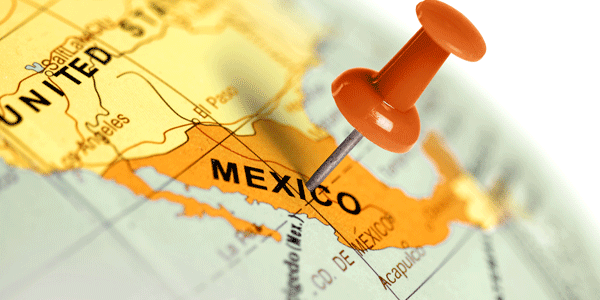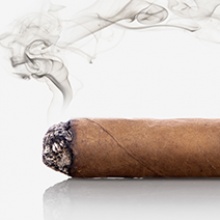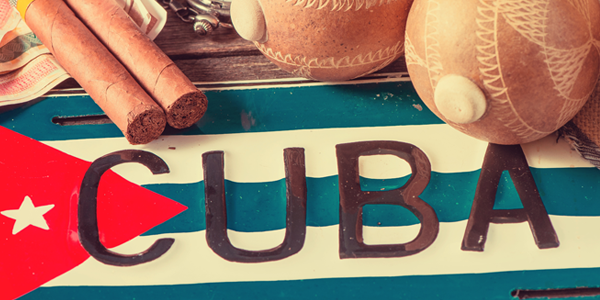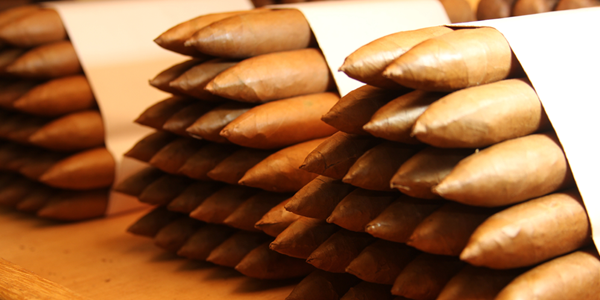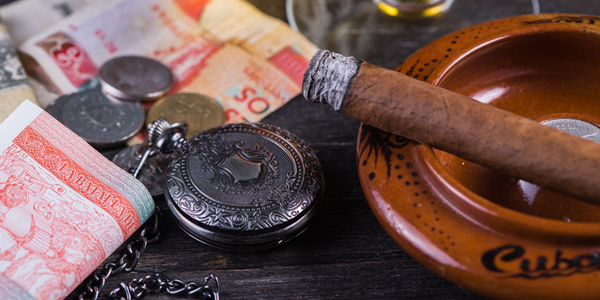Where & How to Buy Cuban Cigars in Mexico
I go to Mexico at least once a year, usually twice. Among the pleasures there is being able to go into cigar stores and browse the offerings of, almost exclusively, Cuban cigars. Several years ago, that’s how I discovered the Punch Duke, a Toro made for the Mexican market. Quite tasty. Having gotten friendly over the years with several of the store owners, I would just sit in the store’s lounge and enjoy a cigar and a beverage. Now, things are a bit less clear, and buying Cuban cigars in Mexico has become a bit more challenging for two reasons. First, a new anti-smoking law went into effect in January of 2023. Also, the shelves of many cigar stores are suffering from inconsistent supplies of Cuban cigars that have become much more expensive.
The New Anti-Smoking Law
In January, seemingly surprising many, the Mexican legislature passed a law that essentially makes it illegal to smoke in any public places. The new law basically expands a 2008 law that cracked down on smoking in bars, restaurants, and the workplace. Until now, businesses could have areas designated to allow smoking. No more. Friends recounted stories of how some sting operations were carried out at a few cafes, with agents undercover asking if they could smoke. When told yes, the businesses got busted. Some are concerned, Mexico being Mexico, that the new law will create a new avenue for payoffs to those enforcing the ban to ignore violations.
Now, all public areas, including beaches, are to be free of smoking. Hotels are included in the ban, though it’s rumored smoking areas can be set up. You can still smoke at home. Not yet clear is whether cigar lounges that are open to the public will continue to operate. On this visit, the ones I’ve frequented remained open. One owner was both defiant and fatalistic.
“We’ll stay open until they come to shut us down,” this owner said, wishing to remain anonymous. “We depend on tourism and the government would be crazy to close us.”
Anyone who is caught smoking could face a fine up to $550 and, possibly, jail time. As of this writing, some businesses have applied and reportedly been given an exemption, or protection, from the new law. Stay tuned.
Buying Cuban Cigars in Mexico
How the law affects cigar sales is somewhat confused and relies on different interpretations. I was able to walk into several stores in Mexico City and in two beach communities, and enter the humidors. In two others, notably one of them was a La Casa del Habano store, customers were not allowed in the humidor. The store clerk presented a list of the available cigars and you had to choose. The cigars would then be brought to you on a tray. Only then could you examine the cigars for any blemishes. In one store outside of the capital, the attendant opened the door to the humidor and allowed me to peek in. Yep. There were cigars in there.
At another La Casa del Habano, the one with the defiant owner, I was not only allowed in the humidor, but invited to enjoy my cigar in a comfortable leather chair. A double espresso was offered and accepted (though it was so bad I didn’t drink it). The cigar I chose was a Punch Punch, a Toro with a 46-ring gauge, 5.625 inches long. This is not a large cigar and it usually ran around $12 to $15 in Mexico. This one? More than $31! You want bargains? Fuhgedaboudit! A Montecristo No. 2 will run you about $45.
Cuban Cigars: Price and Availability
The store at which I purchased the Punch Punch had a good selection of cigars. Of course, it’s an official branch of the Cuban cigar establishment. That is not the case in most cigar stores in Mexico. In all of them, prices are as high as I’ve seen them. Of course, much of this is reportedly due to Chinese investment in the Cuban cigar apparatus, which, as of a couple of years ago, served to make China the number one Cuban cigar market in the world, supplanting Spain. And prices are higher all over the world.
Arriving at Mexico City’s Benito Juarez airport, I pass through immigration and go into the duty-free shop just beyond passport control. Now, while I’ve always browsed in the duty-free shops, I never bought cigars there. I just have never been confident that they’re well maintained.
The cigars are now in a room off the main floor of the store and an attendant must open the door for you. It’s kind of a vault. And it’s kind of empty. There were mostly 3- and 5-packs available of smaller Cohiba, Partagás and Montecristo. Three Cohiba Siglo I cigars were offered for $108. This is a Petit Corona, with a 40-ring gauge, 4 inches long. A 3-pack of Hoyo de Monterrey Petit Robustos, 50-ring gauge by 4 inches, went for a “bargain” rate of $65. The lone box of Montecristo No. 4’s, technically a Petit Corona with a 42-ring gauge by 5.125 inches, would have run $450 for 25 cigars, or $18 per stick. Now, while hardly scientific, the duty-free prices were the lowest of all the shops I visited.
Bottom Line
The first thing you need to be aware of if you’re looking to buy Cuban cigars in Mexico is that there is a strong counterfeit market. Even in what look like reputable stores. I wouldn’t buy anything Cuban outside of a La Casa del Habano, but, I must admit, I likely wouldn’t buy any Cuban cigars in Mexico or anywhere else right now. The quality and consistency might be better than a few years ago, but the prices have significantly diminished the value proposition. During this most recent two-week trip to Mexico, I bought and smoked only one Cuban cigar and that was for the purposes of, um, research. And it was okay, but not as good as the Ashton ESG or Fuente Don Carlos No. 2 cigars I took with me from my own humidor. And which I couldn’t (legally) smoke ANYWHERE!

